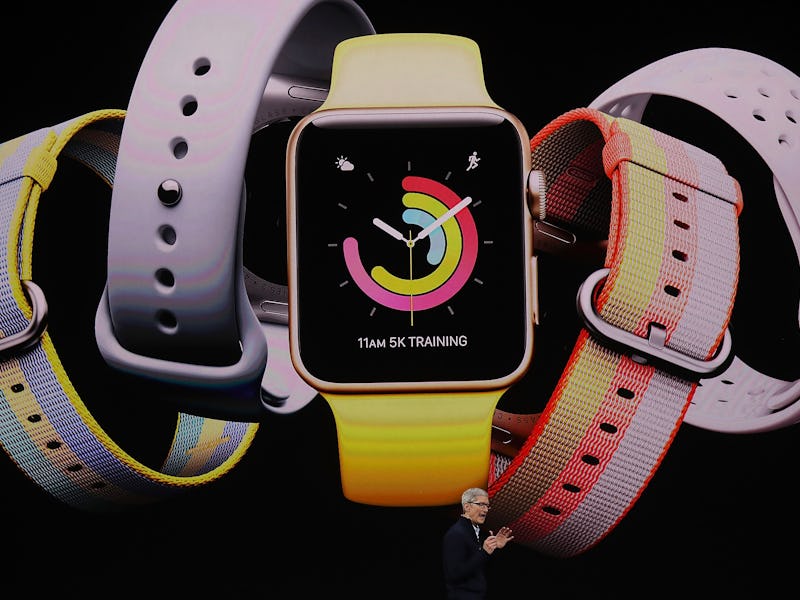Apple Watch Can Spot Tricky Medical Conditions as Well as Doctors Can
Some of the most common conditions are the hardest to spot.

The global toll of high blood pressure is staggering. As much as a third of the Earth’s population lives with hypertension, and it’s believed its complications are involved in as much as onein six deaths worldwide.
For all that, though, hypertension isn’t actually all that easy a condition to diagnose when it is at its most severe. Dangerous spikes in blood pressure can happen anytime, and there’s no guarantee a doctor will happen to be examining the person in question when it happens.
What people need, then, is a wearable sensor that can spot the warning signs before a hypertensive crisis proves fatal. Say hello to the Apple Watch and its fitness-tracking competitors like Fitbit. A new study has revealed Apple’s smartwatch can detect cases of hypertension with 82 percent accuracy, while it can spot the similarly serious and hard-to-diagnose sleep apnea an even more impressi90 percent of the time.
Researchers from the makers of the Apple Watch health app Cardiogram and the University of California, San Francisco presented results this week at the annual meeting of the American Heart Association. They collaborated to show how the smartwatch could use the simplest of data — just the heartrate and step count of its wearer — to predict previously diagnosed cases of hypertension and sleep apnea.
More than 6,000 people participated for an average of nine weeks of data collection. The researchers then used a deep learning A.I. to compare that health data with the known cases of hypertension and sleep apnea in 70 percent of the study, and then to use all that knowledge to predict which of the remaining 30 percent had those conditions. In both cases, the smart watch used straightforward vital information to predict with between 80 and 90 percent accuracy. And because the methodology is so simple, the researchers say there’s no reason this wouldn’t also work using data collected by, say, a Fitbit.
This doesn’t mean smartwatches are about to replace physicians, but it does provide an intriguing way for people and their doctors to find out about potentially serious medical conditions without first having to visit the doctor — or, for that matter, without having to get any specialized sensor to monitor one’s health. Based on this study, all the needed technology to make this work is already running inside your Fitbit or Apple Watch.